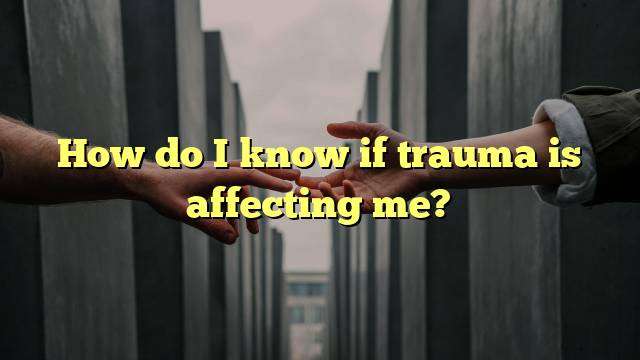How Can I Know if Trauma is Affecting Me?
Dealing with the effects of trauma can be a difficult process. Trauma can leave lasting physical, mental, and emotional scars on an individual and it can take time to recognize and address the symptoms of trauma. It is important to understand the various signs of trauma, so that you can determine if it is having an effect on your life.
Physical Symptoms
The physical symptoms of trauma can vary greatly depending on the type and severity of the trauma. Common physical signs include fatigue, insomnia, headaches, stomach pain, and chest pain. Other physical symptoms of trauma can include nausea, dizziness, racing heart, shortness of breath, and trembling.
Emotional Signs
The emotional signs of trauma can be more difficult to identify, but they can be highly impactful. Some of the most common emotional signs of trauma include fear, anxiety, depression, anger, irritability, shock and disbelief, and emotional numbing. It is also common to feel guilt or shame, particularly if the trauma involved a situation where the person survived while others did not.
Behavioral Patterns
Behavioral changes can also indicate the presence of trauma in an individual. Some of the most common behavioral patterns associated with trauma include avoidance of certain activities, people, or places that trigger emotional responses, difficulty concentrating, increased or decreased appetite, and substance abuse.
Psychological Symptoms
Psychological symptoms of trauma can be some of the most difficult to recognize and address. These symptoms can include anxiety and panic attacks, post-traumatic stress disorder (PTSD), obsessive-compulsive behaviors, and dissociative disorders. It is important to be aware of these symptoms and to seek help if you are experiencing any of them.
How to Address Trauma
If you think you are experiencing the effects of trauma, it is important to seek professional help. A therapist or psychologist can help you identify the source of the trauma and assist you in processing and healing from the traumatic event. It is also important to take care of yourself by practicing self-care and engaging in activities that provide emotional and physical benefits such as exercise and relaxation.
The effects of trauma can be difficult to deal with, but it is possible to heal and move forward. With the right support and resources, you can learn to recognize and manage the symptoms of trauma, so that you can lead a healthier and more fulfilling life.


